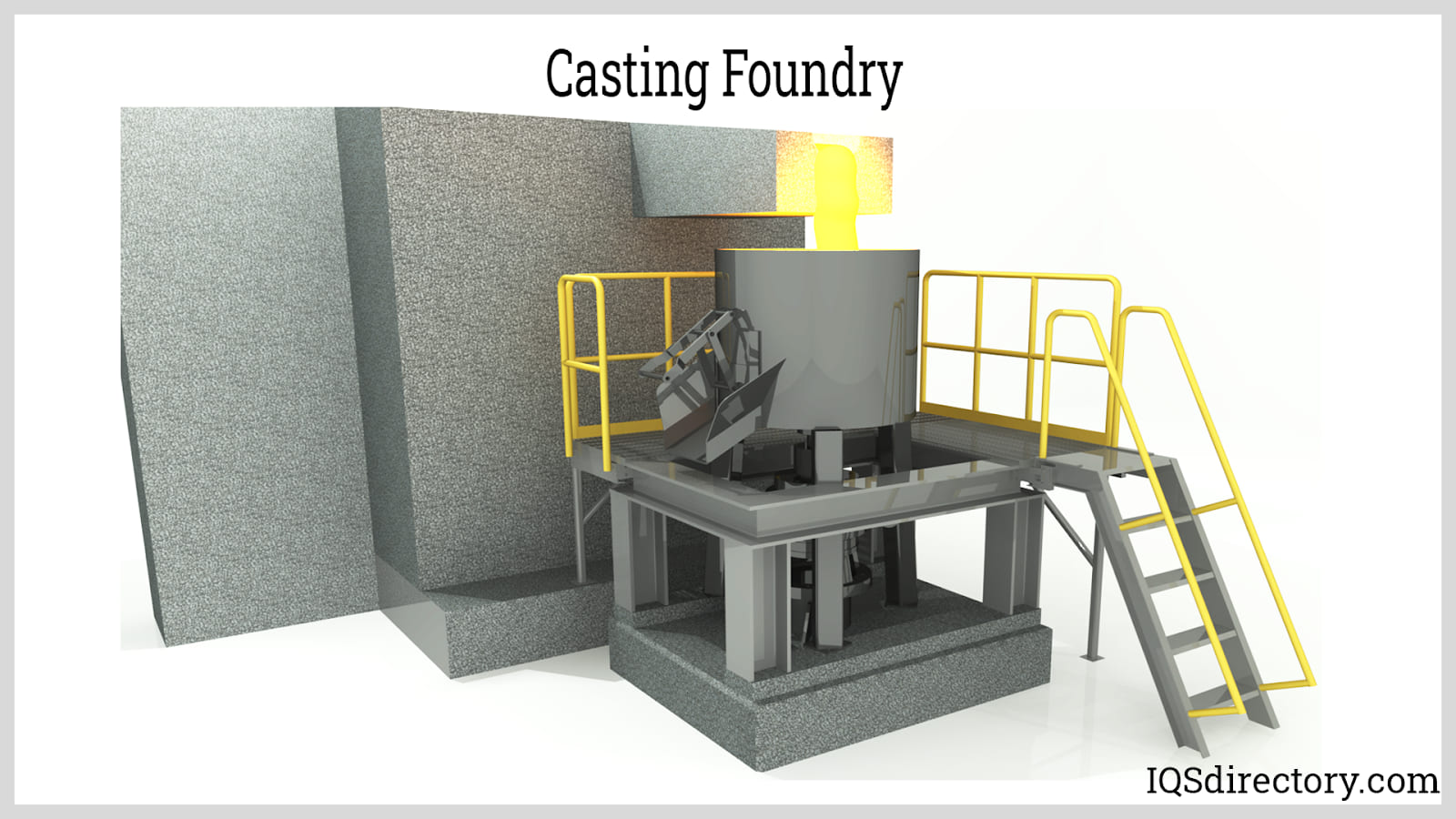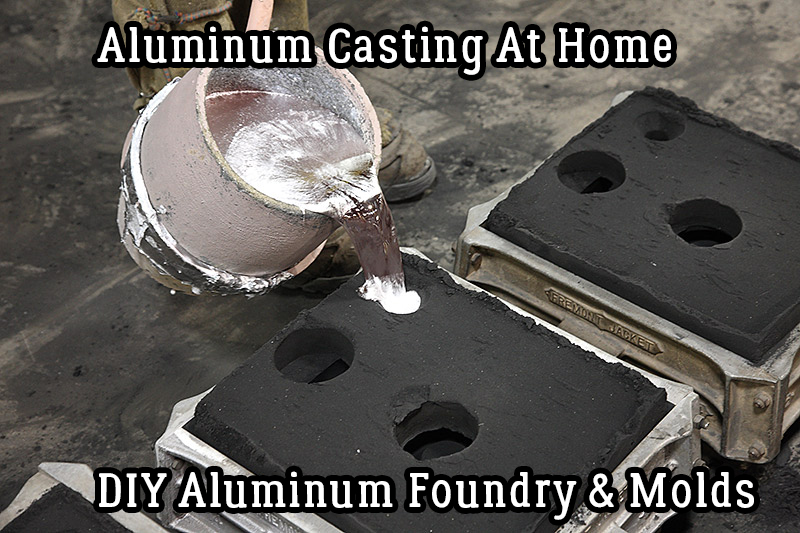Recognizing the Benefits and Innovations in the Aluminum Foundry Industry
The Aluminum Foundry market plays an essential function in modern production. Its light-weight residential or commercial properties significantly improve gas effectiveness, specifically in aerospace and automobile markets. In addition, Aluminum's resistance to corrosion assurances durability in numerous applications. As the industry progresses, advancements such as innovative recycling and additive production are reshaping production methods. Checking out these innovations reveals not only the advantages but also the challenges ahead for Aluminum foundries in a quickly transforming market.
The Lightweight Benefit of Aluminum
Aluminum's light-weight nature provides considerable benefits across numerous sectors, especially in manufacturing and transportation. Its low density permits the production of components that are much easier to manage and set up, leading to reduced labor expenses and enhanced performance. In the vehicle industry, lighter automobiles add to boosted fuel economic situation and reduced discharges, aligning with international sustainability objectives. In aerospace, the use of Aluminum minimizes the general weight of aircraft, which is important for improving performance and lowering functional expenses.
Furthermore, Aluminum's light-weight residential properties assist in cutting-edge layouts that were formerly impossible with heavier products. This flexibility makes it possible for makers to create intricate shapes and structures while keeping structural stability. In general, the light-weight advantage of Aluminum not just enhances item performance however also drives advancements in technology and style, making it a preferred material in different applications.
Corrosion Resistance and Resilience
The Aluminum Foundry sector is renowned for producing products with remarkable deterioration resistance, making them ideal for numerous applications. This home, incorporated with improved architectural honesty, adds to the durable efficiency advantages that Aluminum components use. Consequently, sectors increasingly rely upon Aluminum to satisfy demanding ecological conditions without endangering quality.
Superior Rust Resistance
While numerous metals deal with considerable difficulties from ecological factors, Aluminum sticks out for its premium deterioration resistance, making it a recommended choice in numerous applications. This building is mostly due to a natural oxide layer that forms on the Aluminum surface area, providing a barrier against moisture and corrosive representatives. Unlike various other steels that might corrosion or weaken over time, Aluminum keeps its honesty also in extreme atmospheres, such as industrial settings or coastal areas. Additionally, its lightweight nature integrated with rust resistance makes it ideal for applications in aerospace, vehicle, and marine industries. In general, Aluminum's remarkable toughness not only enhances product longevity yet likewise reduces maintenance costs, offering a compelling advantage for manufacturers and customers alike.
Boosted Structural Integrity
Designers and designers increasingly identify the value of enhanced architectural stability in modern applications, where both deterioration resistance and longevity are essential. Aluminum alloys, understood for their lightweight residential or commercial properties, additionally exhibit extraordinary resistance to rust, making them ideal for rough environments. The cutting-edge methods used in the Aluminum Foundry sector contribute substantially to creating parts with improved durability. Advanced casting processes and alloy make-ups are tailored to satisfy specific performance needs, ensuring that frameworks can stand up to severe conditions without compromising honesty. Surface area therapies and coatings improve the life expectancy of Aluminum items, even more alleviating damage over time. This focus on boosted structural stability not just prolongs the usability of products yet also lowers upkeep prices, strengthening Aluminum's setting as a product of selection in numerous sectors.
Durable Performance Benefits
Long-lasting efficiency in Aluminum components is mostly associated to their remarkable rust resistance and resilience. Unlike numerous metals, Aluminum naturally forms a protective oxide layer, which avoids rust and deterioration in various environments, including aquatic and commercial settings. This inherent residential property substantially expands the life expectancy of Aluminum products, minimizing maintenance and substitute expenses. Furthermore, the light-weight nature of Aluminum boosts its applicability throughout industries without endangering stamina. The product's resistance to damage additionally adds to its integrity sought after applications, making it an ideal choice for auto, aerospace, and construction sectors. As sectors significantly focus on sustainability and longevity, Aluminum's efficiency benefits align with modern-day engineering needs, strengthening its function in innovative production processes.
Environmental Influence and Sustainability
 As the Aluminum Foundry sector develops, it significantly prioritizes environmental impact and sustainability, acknowledging the need for accountable methods in the face of environment adjustment. Efforts to reduce waste and energy usage go to the center, with many shops adopting reusing campaigns to redeem Aluminum scrap. This not just decreases raw product use yet likewise especially reduces down energy expenditure, as recycled Aluminum calls for only a fraction of the power contrasted to key production.
As the Aluminum Foundry sector develops, it significantly prioritizes environmental impact and sustainability, acknowledging the need for accountable methods in the face of environment adjustment. Efforts to reduce waste and energy usage go to the center, with many shops adopting reusing campaigns to redeem Aluminum scrap. This not just decreases raw product use yet likewise especially reduces down energy expenditure, as recycled Aluminum calls for only a fraction of the power contrasted to key production.Advancements in emissions control innovations are being carried out to lower air toxins, straightening procedures with more stringent ecological regulations. Foundries are also checking out alternate power resources, such as solar and wind, click for source to power their facilities sustainably. By promoting partnership with stakeholders, the sector intends to establish ingenious options that boost eco-friendly stewardship. Collectively, these initiatives highlight a commitment to lowering the Aluminum Foundry's carbon impact while promoting a circular economic situation within the manufacturing sector.
Advanced Production Techniques
 Revolutionizing manufacturing procedures, the Aluminum Foundry industry is increasingly incorporating innovative production techniques to improve effectiveness and precision. Strategies such as computer mathematical control (CNC) machining and additive production have arised as vital elements in maximizing production workflows. CNC machining permits high-precision element construction, considerably decreasing product waste and production time. Meanwhile, additive production opens brand-new methods for complex geometries and light-weight styles that were previously tough to achieve.
Revolutionizing manufacturing procedures, the Aluminum Foundry industry is increasingly incorporating innovative production techniques to improve effectiveness and precision. Strategies such as computer mathematical control (CNC) machining and additive production have arised as vital elements in maximizing production workflows. CNC machining permits high-precision element construction, considerably decreasing product waste and production time. Meanwhile, additive production opens brand-new methods for complex geometries and light-weight styles that were previously tough to achieve.In addition, the implementation of automation and robotics in Aluminum foundries simplifies operations, reduces human mistake, and enhances employee safety. These modern technologies facilitate an even more responsive production setting, making it possible for makers to adapt swiftly to market needs. The integration of sophisticated simulation you can find out more software application better boosts the design and screening stages, causing exceptional product high quality. Jointly, these strategies not just enhance operational effectiveness yet additionally foster innovation, positioning the Aluminum Foundry sector at the center of modern manufacturing.
Advancements in Recycling Processes
The Aluminum Foundry industry is not only progressing in producing methods yet is likewise making considerable strides in recycling processes. Innovations are emerging to enhance the performance of reusing techniques, minimizing power usage and enhancing sustainability. Advanced sorting technologies, such as automated optical sorting, enable the recognition and splitting up of Aluminum from other materials with high precision. This leads to a greater high quality of recycled Aluminum, which is important for keeping the stability of the final items.
Additionally, closed-loop recycling systems are being implemented, allowing suppliers to reuse Aluminum scrap within their very own production processes. This lessens waste and advertises a round economy. Additionally, research into brand-new recycling techniques, such as hydrometallurgical procedures, offers the capacity for recouping Aluminum from complicated waste streams. These developments not only add to lowering the carbon footprint of the Aluminum Foundry sector however also bolster its financial practicality in a significantly ecologically aware market.
Applications Across Different Industries
Numerous sectors are progressively identifying the versatility and benefits of Aluminum Foundry items, resulting in prevalent applications throughout industries such as auto, building and construction, aerospace, and consumer goods. In the automobile market, Aluminum spreadings contribute to light-weight lorry layouts, enhancing fuel performance and efficiency. Aerospace manufacturers utilize Aluminum elements for their strength-to-weight ratio, necessary for airplane frameworks and parts.
In construction, Aluminum is favored for its toughness and resistance to deterioration, making it ideal for window structures, roof covering, and architectural assistances. Customer goods also take advantage of Aluminum Foundry items, as seen in cookware, electronics, and packaging, where light-weight and recyclable products are essential.
The adaptability of Aluminum Foundry methods enables for exact specs and elaborate layouts, accommodating the diverse needs of these industries. Therefore, Aluminum Foundry items are coming to be indispensable to modern-day production processes throughout different sectors.
Future Fads in Aluminum Foundries
As sectors proceed to evolve, Aluminum shops are positioned to embrace numerous essential patterns that guarantee to improve efficiency and sustainability. One prominent trend is the raising adoption of electronic modern technologies, including automation and expert system, which simplify procedures and enhance high quality you can check here control. On top of that, the push towards lasting practices is leading shops to purchase recycling innovations, significantly reducing waste and power usage.
 An additional emerging pattern is making use of advanced alloys and materials, providing to the growing demand for durable and lightweight parts across different industries (Aluminum Foundry). The combination of additive production strategies is anticipated to change part style, using modification and reducing lead times.
An additional emerging pattern is making use of advanced alloys and materials, providing to the growing demand for durable and lightweight parts across different industries (Aluminum Foundry). The combination of additive production strategies is anticipated to change part style, using modification and reducing lead times.Cooperation with research organizations is likewise anticipated to drive development, as shops look for to develop new processes and products. Aluminum Foundry. Collectively, these trends indicate a transformative future for the Aluminum Foundry industry, lining up with broader goals of sustainability and effectiveness
Often Asked Concerns
What Are the Normal Expenses Connected With Aluminum Foundry Manufacturing?
The regular prices connected with Aluminum Foundry manufacturing consist of resources, labor, power, devices upkeep, and overhead expenses. These factors collectively affect the total monetary investment needed for effective Aluminum casting operations.
Just How Does Aluminum Compare to Other Metals in Strength?
Aluminum, while lighter than many metals, exhibits outstanding strength-to-weight ratios. Compared to steel, Aluminum is much less strong yet uses exceptional rust resistance, making it a beneficial choice in applications where weight and resilience are vital.
What Safety and security Measures Remain In Area in Aluminum Foundries?
Security steps in Aluminum factories usually consist of required personal safety tools, ventilation systems to regulate fumes, routine devices maintenance, training programs for staff members, and adherence to strict safety laws to minimize threats connected with liquified steel handling.
Exactly How Is Quality Assurance Managed in Aluminum Casting Processes?
Quality control in Aluminum casting processes involves strenuous examinations at numerous phases, including resources assessment, process monitoring, and last item testing. Methods such as analytical procedure control and non-destructive testing warranty adherence to industry standards.
What Certifications Are Essential for Aluminum Foundry Vendors?
The relevance of certifications for Aluminum Foundry vendors consists of ISO 9001 for quality administration, ISO 14001 for environmental monitoring, and industry-specific criteria like ASTM and SAE, making certain conformity, safety, and dependability in producing procedures.
The Aluminum Foundry market plays an important function in contemporary manufacturing. The Aluminum Foundry industry is renowned for generating materials with remarkable corrosion resistance, making them perfect for different applications. Changing production procedures, the Aluminum Foundry market is increasingly integrating advanced manufacturing methods to boost efficiency and accuracy. The Aluminum Foundry sector is not only advancing in manufacturing methods however is additionally making substantial strides in reusing procedures. As sectors proceed to advance, Aluminum factories are positioned to accept a number of key patterns that assure to enhance performance and sustainability.